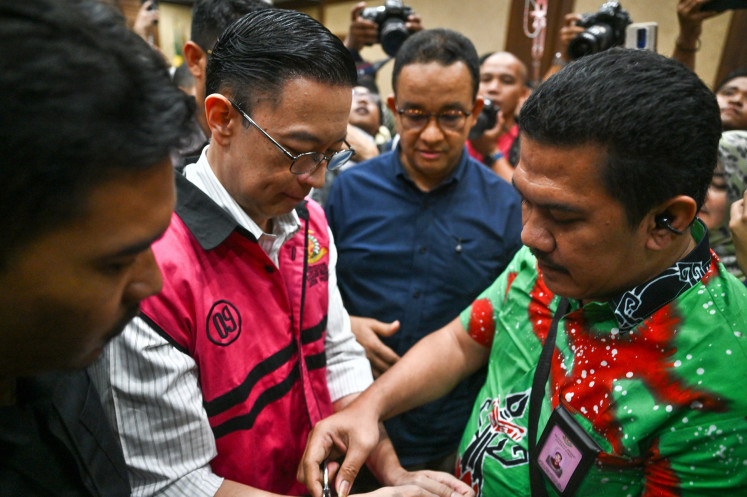Popular Reads
Top Results
Can't find what you're looking for?
View all search resultsPopular Reads
Top Results
Can't find what you're looking for?
View all search resultsWHO recognizes RI progress on eliminating malaria
Indonesia is among those countries in South-East Asia that have achieved encouraging progress in controlling malaria thanks to scaled up interventions that include long-lasting insecticidal nets, rapid diagnostic tests and artemisinin-based combinations, according to the World Health Organization (WHO)
Change text size
Gift Premium Articles
to Anyone
I
ndonesia is among those countries in South-East Asia that have achieved encouraging progress in controlling malaria thanks to scaled up interventions that include long-lasting insecticidal nets, rapid diagnostic tests and artemisinin-based combinations, according to the World Health Organization (WHO).
'Indonesia and several other countries in the region, including Bhutan, the Democratic People's Republic of Korea, Nepal, Sri Lanka and Thailand, are aiming for the elimination of malaria,' the WHO's South-East Asia Region Office (SEARO) said in a statement made available to The Jakarta Post on Wednesday.
WHO data shows that reported malaria cases in the region declined by 43 percent to 3.4 million in 2011 from 5.96 million in 2003. Meanwhile, the number of malaria deaths decreased by 68 percent from 4,482 in 2003 to 1,819 in 2011.
However, the WHO said these achievements could unravel in the face of new challenges, particularly the growing threat of resistance to the most effective anti-malarial drug, artemisinin.
Two countries in the region, Myanmar and Thailand, as well as Cambodia and Vietnam in WHO's Western Pacific Region, are particularly affected.
Approximately 1.3 billion people in the South-East Asia region in South-East Asia continue to be at the risk of contracting malaria, even though substantial progress has been made in controlling the disease.
With support from the WHO and other partner agencies, countries are aiming to reduce malaria cases and deaths by 75 percent by 2015 (from the year 2000) with the long-term goal of eliminating the disease.
WHO SEARO regional director Samlee Plianbangchang said malaria impacted upon the socioeconomic development of a country.
'Political will for urgent, collective action supported by greater investment is needed to prevent the resurgence of malaria,' he added. (ebf)










